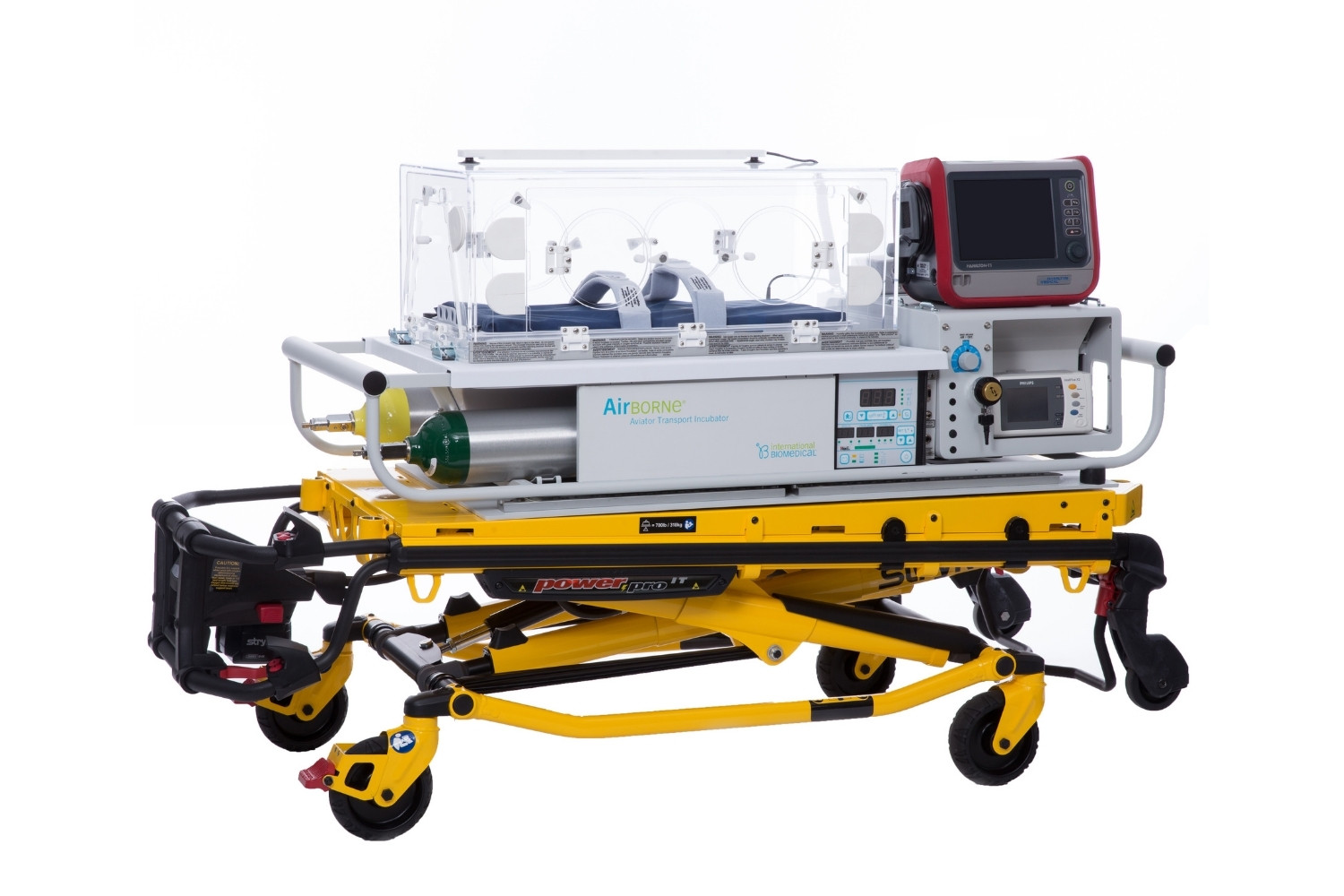
How does an infant transport incubator work? An infant transport incubator is a specialized medical device designed to safely move newborns, especially those born prematurely or with medical conditions. It provides a controlled environment with regulated temperature, humidity, and oxygen levels. This ensures the baby remains stable during transit. The incubator has a transparent enclosure, allowing medical staff to monitor the infant closely. Built-in features like ventilators, IV pumps, and monitoring systems help manage the baby's vital signs. These incubators are essential for transferring infants between hospitals or from birth centers to specialized care units.
What is an Infant Transport Incubator?
An infant transport incubator is a specialized medical device designed to safely transport newborns, especially premature or critically ill infants, from one location to another. These incubators provide a controlled environment that maintains the necessary temperature, humidity, and oxygen levels to ensure the infant's well-being during transit.
-
Temperature Control: These incubators maintain a stable temperature to mimic the womb's environment, crucial for premature babies who cannot regulate their body temperature.
-
Humidity Regulation: Proper humidity levels prevent the infant's skin from drying out and help maintain their overall health.
-
Oxygen Supply: They often come equipped with oxygen tanks to ensure the baby receives adequate oxygen during transport.
Key Features of Infant Transport Incubators
These incubators come with various features designed to ensure the safety and comfort of the infant during transport.
-
Portability: Designed to be lightweight and easy to move, making it easier for medical staff to transport infants between locations.
-
Battery Backup: Equipped with battery backups to ensure continuous operation even during power outages or long transports.
-
Shock Absorption: Built with shock-absorbing materials to protect the infant from vibrations and jolts during transit.
-
Monitoring Systems: Integrated monitoring systems track vital signs like heart rate, oxygen levels, and temperature.
Importance in Neonatal Care
Infant transport incubators play a critical role in neonatal care, especially for premature or critically ill infants who need specialized medical attention.
-
Emergency Transfers: Essential for transferring infants to specialized care units quickly and safely.
-
Inter-Hospital Transfers: Facilitate the movement of infants between hospitals for specialized treatments or surgeries.
-
Field Use: Useful in disaster situations or remote areas where immediate neonatal care is required.
Technological Advancements
Advancements in technology have significantly improved the functionality and reliability of infant transport incubators.
-
Smart Alarms: Modern incubators come with smart alarms that alert medical staff to any changes in the infant's condition.
-
Remote Monitoring: Some models allow for remote monitoring, enabling specialists to oversee the infant's condition from a distance.
-
Integrated Ventilators: Advanced models include integrated ventilators to assist infants with breathing difficulties.
Safety Measures
Safety is paramount when it comes to transporting vulnerable infants. These incubators are designed with multiple safety features.
-
Secure Straps: Infants are securely strapped in to prevent any movement during transport.
-
Double-Walled Construction: Provides extra insulation and protection against external temperature changes.
-
UV Protection: Some incubators come with UV protection to shield infants from harmful ultraviolet rays.
Historical Context
Understanding the history of infant transport incubators provides insight into their development and importance.
-
First Use: The first transport incubator was used in the 1930s, revolutionizing neonatal care.
-
Evolution: Over the decades, these devices have evolved from simple heated boxes to sophisticated, high-tech machines.
-
Pioneers: Dr. Julius Hess is often credited with developing the first infant incubator, laying the groundwork for modern neonatal care.
Global Impact
Infant transport incubators have a significant impact on neonatal care worldwide, especially in developing countries.
-
Reducing Infant Mortality: These incubators have played a crucial role in reducing infant mortality rates globally.
-
Access to Care: They provide access to specialized care for infants in remote or underserved areas.
-
Training Programs: Many organizations offer training programs to ensure medical staff are proficient in using these devices.
Challenges and Solutions
Despite their benefits, there are challenges associated with the use of infant transport incubators.
-
Cost: High costs can be a barrier for some hospitals, especially in low-income countries.
-
Maintenance: Regular maintenance is required to ensure the incubators function correctly, which can be resource-intensive.
-
Training: Proper training is essential for medical staff to operate these complex devices effectively.
Future Prospects
The future of infant transport incubators looks promising, with ongoing research and development aimed at improving their functionality and accessibility.
- Innovations: Future innovations may include more compact designs, enhanced monitoring capabilities, and improved energy efficiency.
The Final Word on Infant Transport Incubators
Infant transport incubators are lifesavers for premature and critically ill newborns. These devices provide a controlled environment, maintaining the right temperature and humidity levels. They also offer protection from infections and physical shocks during transport. Equipped with advanced monitoring systems, they ensure continuous observation of vital signs. The portability and reliability of these incubators make them indispensable in neonatal care.
Understanding their importance highlights the need for ongoing innovation and investment in neonatal healthcare. As technology advances, these incubators will become even more efficient and accessible, potentially saving more lives. Healthcare professionals rely on these tools to give newborns the best start in life.
So, next time you hear about an infant transport incubator, remember its crucial role in neonatal care. These devices are more than just medical equipment; they are lifelines for the tiniest patients.
Was this page helpful?
Our commitment to delivering trustworthy and engaging content is at the heart of what we do. Each fact on our site is contributed by real users like you, bringing a wealth of diverse insights and information. To ensure the highest standards of accuracy and reliability, our dedicated editors meticulously review each submission. This process guarantees that the facts we share are not only fascinating but also credible. Trust in our commitment to quality and authenticity as you explore and learn with us.
